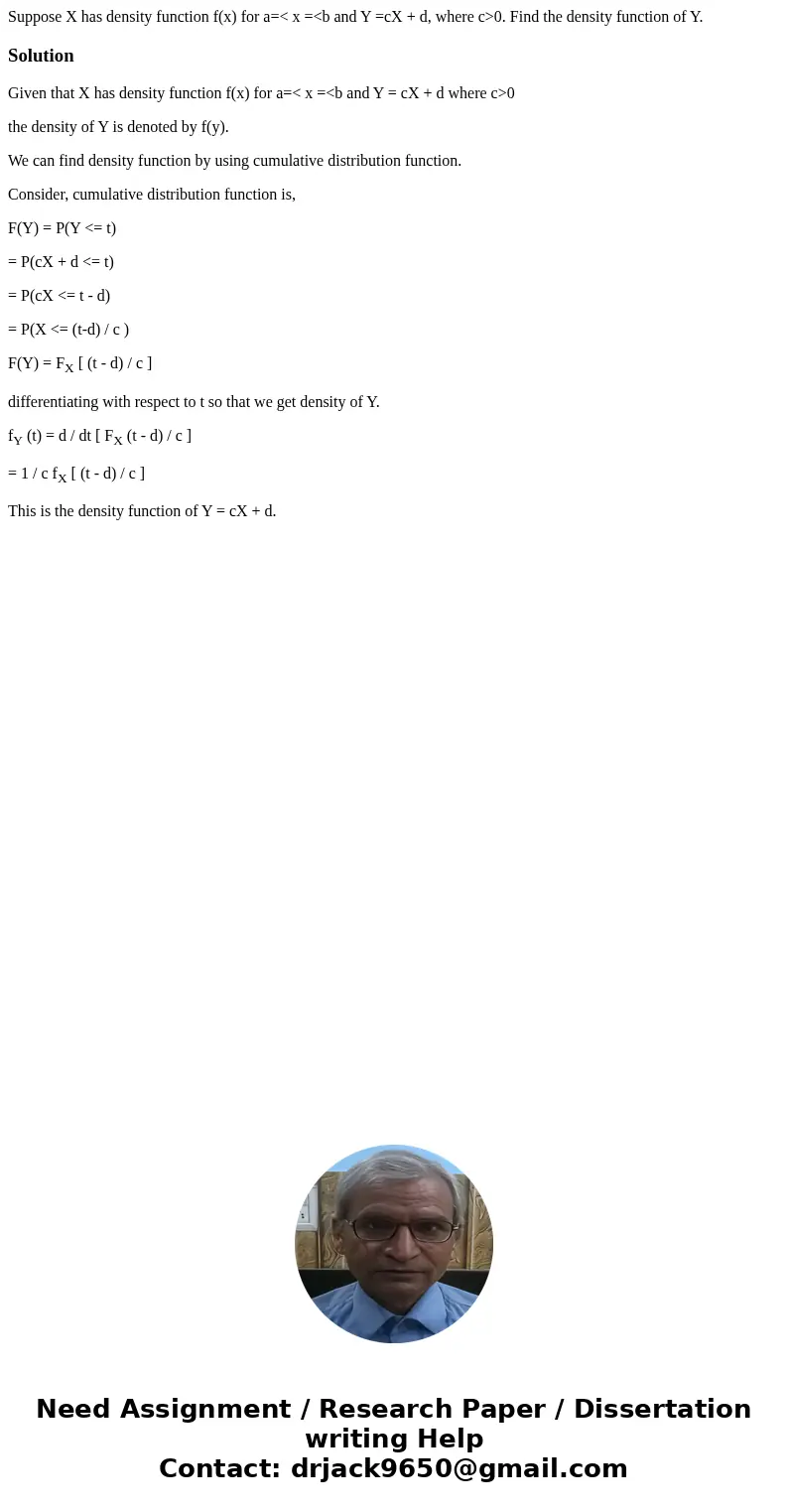Suppose X has density function fx for a x 0 Find the density
Suppose X has density function f(x) for a=< x =<b and Y =cX + d, where c>0. Find the density function of Y.
Solution
Given that X has density function f(x) for a=< x =<b and Y = cX + d where c>0
the density of Y is denoted by f(y).
We can find density function by using cumulative distribution function.
Consider, cumulative distribution function is,
F(Y) = P(Y <= t)
= P(cX + d <= t)
= P(cX <= t - d)
= P(X <= (t-d) / c )
F(Y) = FX [ (t - d) / c ]
differentiating with respect to t so that we get density of Y.
fY (t) = d / dt [ FX (t - d) / c ]
= 1 / c fX [ (t - d) / c ]
This is the density function of Y = cX + d.

 Homework Sourse
Homework Sourse